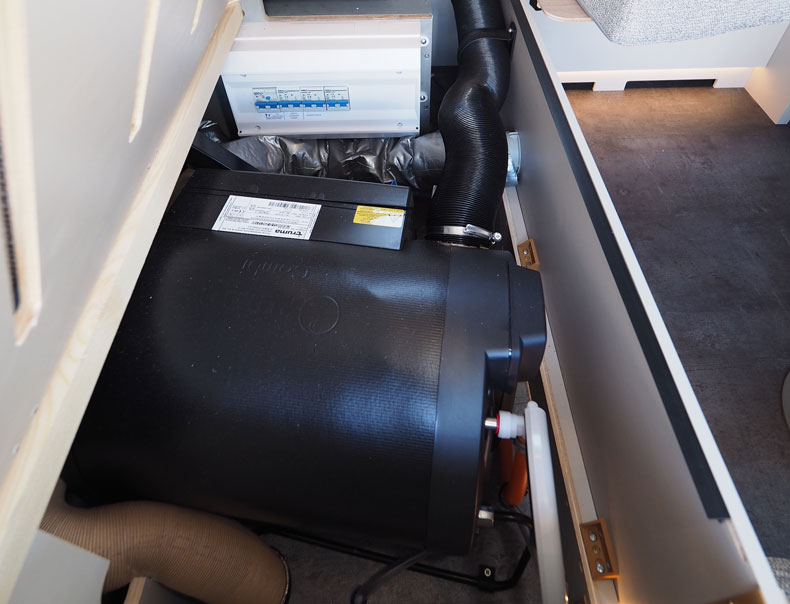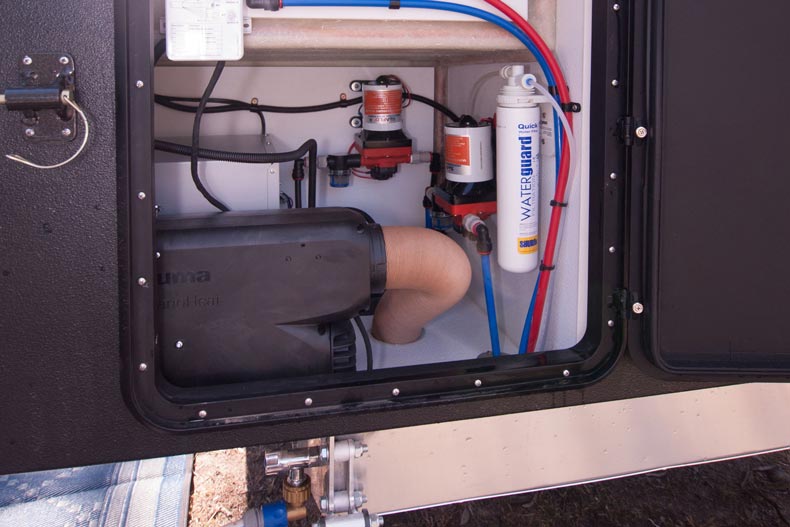Top Tips for Choosing and Maintaining Motorhome Heating Systems
Author: Malcolm Street Date Posted: 3 June 2019

You can travel comfortably all year round in New Zealand thanks to modern heaters. Here’s what you need to know to choose and maintain the right one for you.
Diesel and Gas Air Heating
Up until about 10 years ago, most heaters used in RVs were either electrically driving fan heaters or slightly more lethally, open flame LPG burners.
But in more recent times, especially as RV travellers have learned that it is possible to travel all year round even in the southern parts of Australia, air heaters have become more popular. Especially as they can be fitted as a retro installation and, in the case of diesel fired heaters, fitted by a competent handy person.
Having mentioned diesel heaters, currently there is really only one other choice for a fuel source, Liquid Propane Gas (LPG). Both diesel and LPG have their advantages and disadvantages and sometimes for practical reasons (like the fuel source), there is less of a choice. Both LP gas and diesel are widely used and considered safe, as long as the heater and associated pipework complies with the relevant standard.
Undoubtedly the most important feature of air heaters is that they work on the principle of air being blown over a hot element. They use the heat exchange principle, that is all noxious gases from burning which heats up the hot element are expelled to the outside air. Clean air blowing across the heater is then exhausted into the living area of the RV. A different style of heater, otherwise known as a catalytic type, which uses an open flame where fumes enter the cabin area should not be considered.
.jpg)
Gas air heaters
LP gas heaters, made by manufacturers like Propex and Truma work in much the same way as diesel, in that air for the heater's internal combustion process is drawn from an external intake pipe (usually through the floor) and passed into the heater's combustion chamber. It's mixed with LPG and automatically ignited heats up the large surface area of a heat-exchanger. There are several manufacturers like Truma who make a combo water and air heater. For the most part, these are LP gas fired and they can be a great space saver, something necessary in smaller RVs.
Unlike diesel heaters, there are quite a few regulatory requirements for the installation of gas appliances, all can be found in AS/NZS 5601. One of the advantages of gas air heaters occurs more in caravans than motorhomes. There’s usually a gas cooker, LP gas fired water heater and sometimes a three way fridge, so most of the gas infrastructure is already there. If a diesel air heater is added, the it needs a separate fuel tank. In a diesel engine motorhome, the fuel supply is already there and it’s just a matter of tapping into the main tank.
.jpg)
Diesel Heaters
In Australasia there are two main suppliers of diesel air heaters, Webasto (USA) and Dometic’s Eberspacher (Europe). There are some heaters available from China which are mostly knock-off copies of the former. All work on the principle of diesel fuel being injected by a fuel pump over a glow pin that has reached a temperature of around 500C. At that heat the burning cycle is self-perpetuating and the glow pin is no longer needed.
Diesel air heaters can be installed both in new RVs under construction and, in many cases, as a retro installation in older motorhomes.

Maintenance – Diesel heaters
For the home handy person, there isn’t too much maintenance work required. The principle items seem to be that the heater should be run once a month for about 10 minutes and after long standstill periods, the combustion air supply and exhaust system should be checked for foreign objects.
Other items include checking the electrical system for any connector corrosion, checking the fuel lines for leaks and replacing the fuel filter if necessary. Items such as glow pins and fuel screens should be left to professionals.

Maintenance – LPG heaters
It’s mostly similar to diesel heaters for any maintenance items but with a combo water heater tank, there are a few extra items including chemically descaling the water tank and checking the sacrificial anode.
Apart from all that, it’s just a matter of enjoying a bit of winter comfort!






